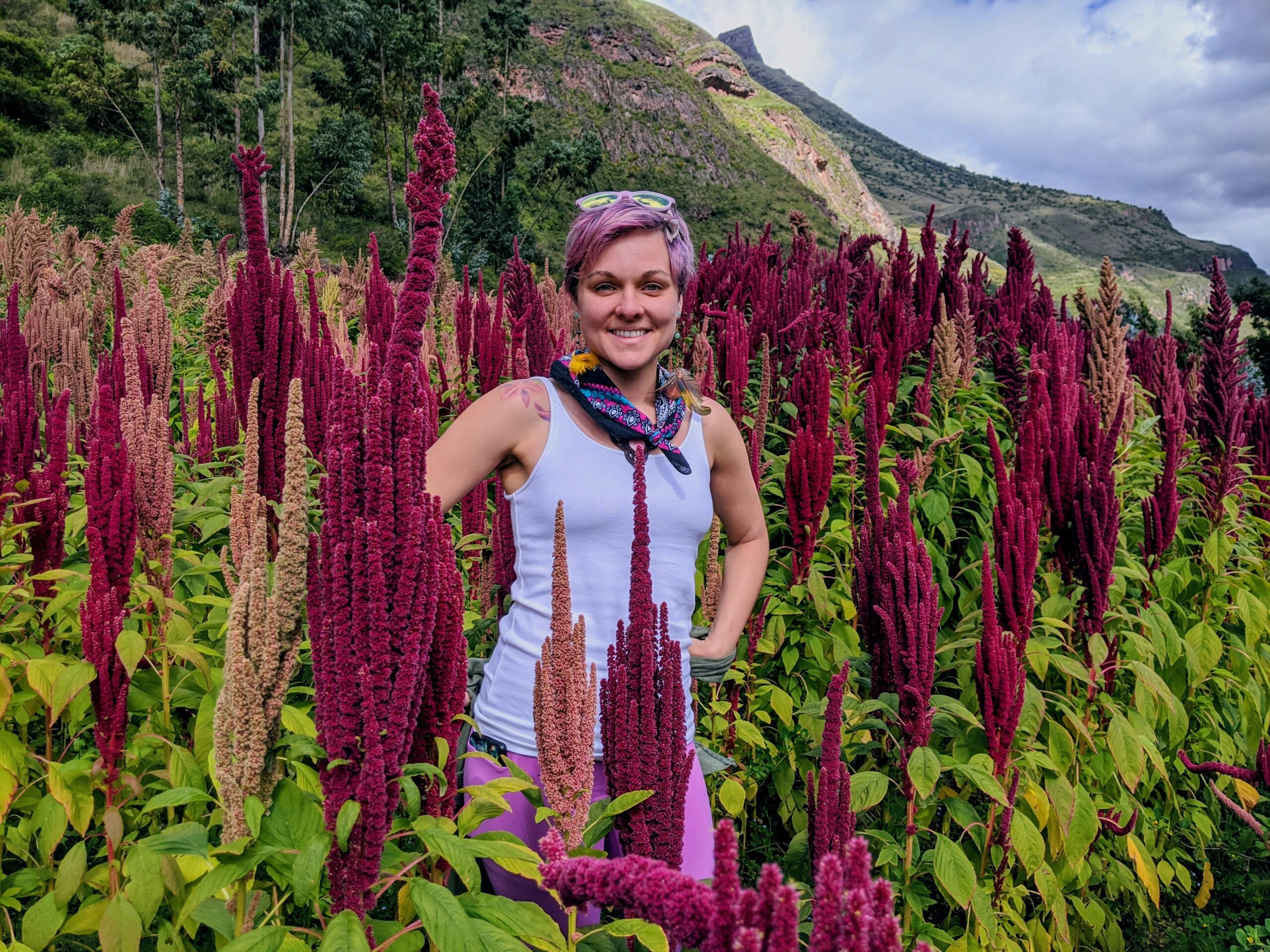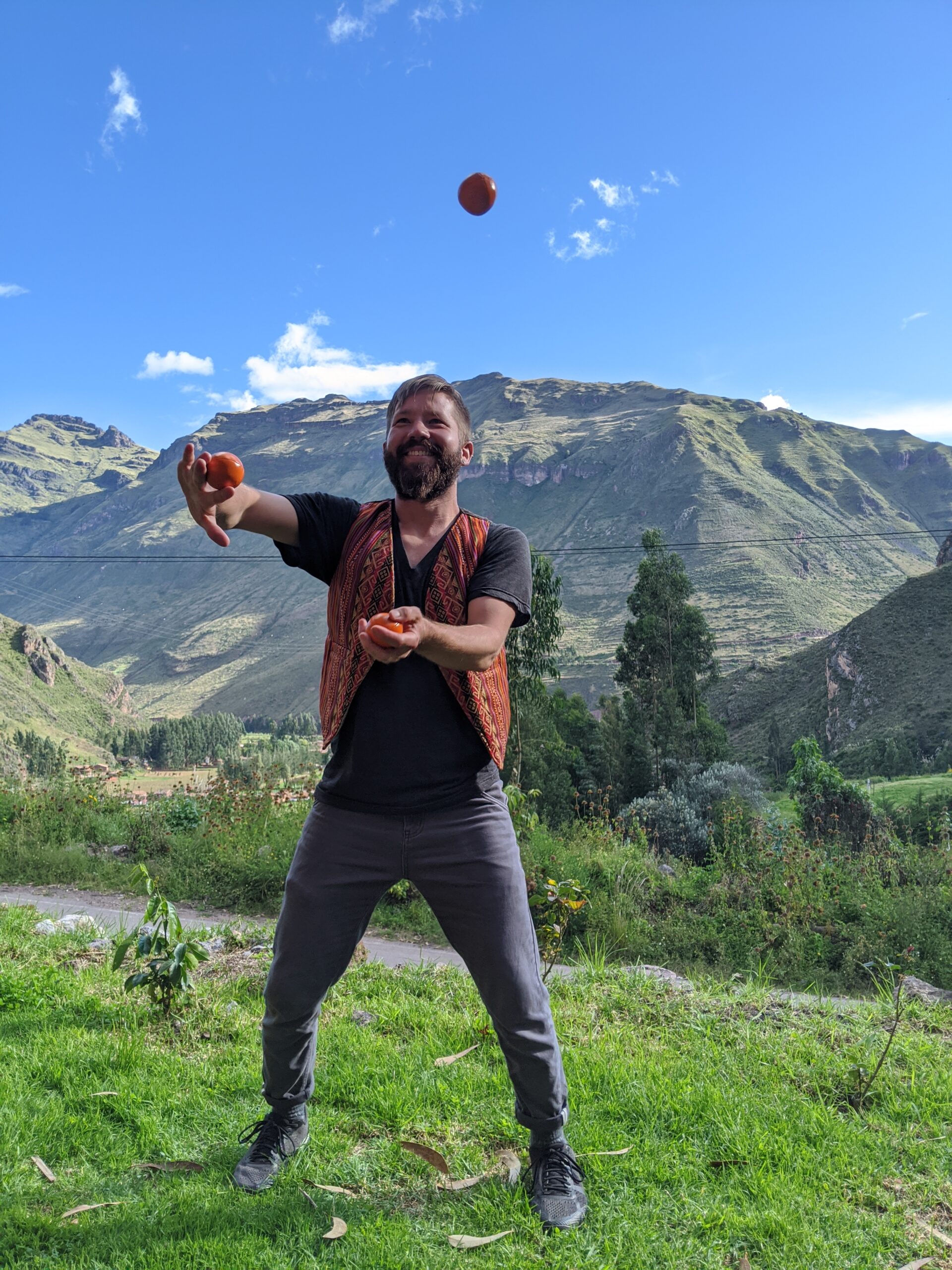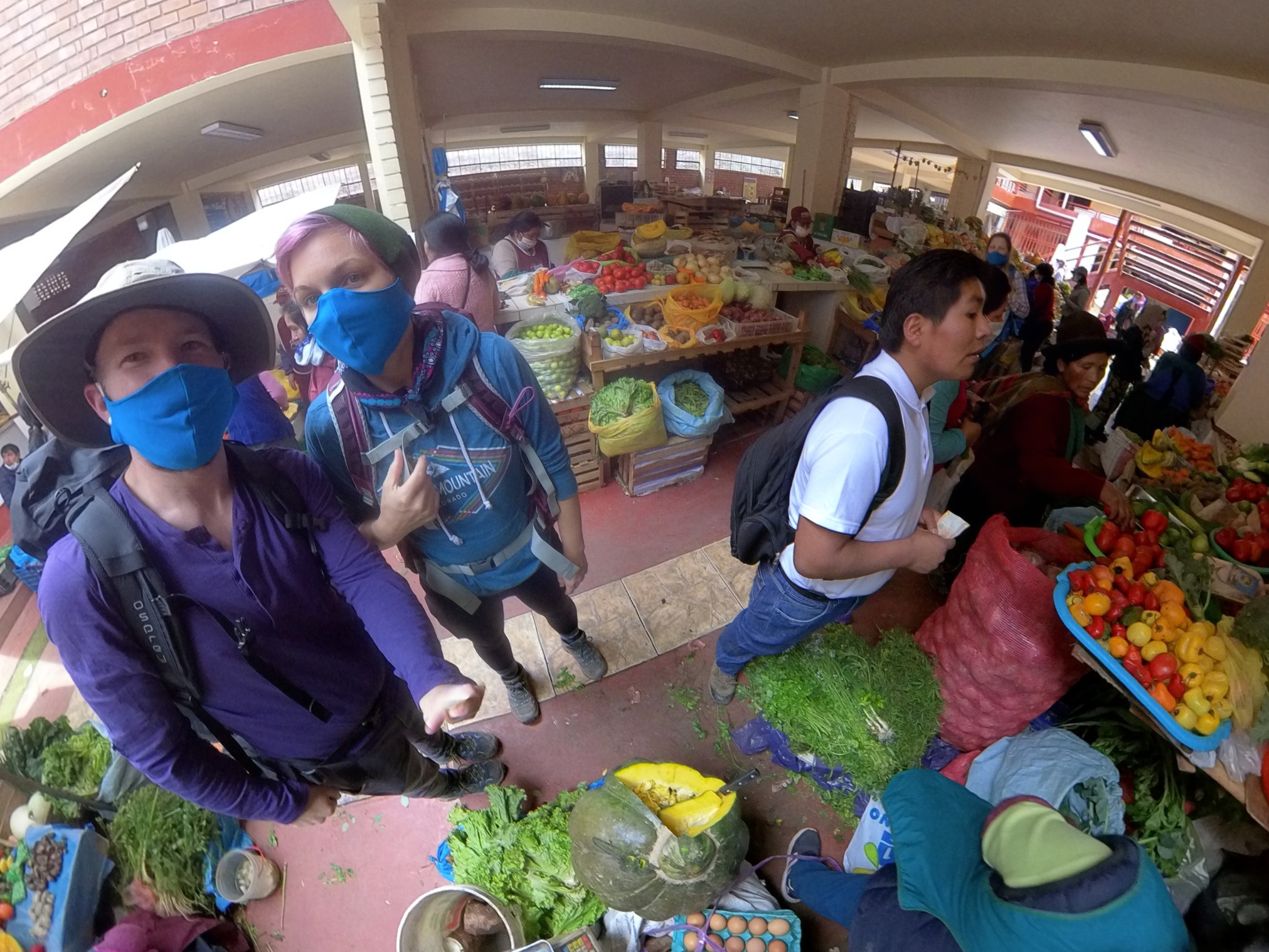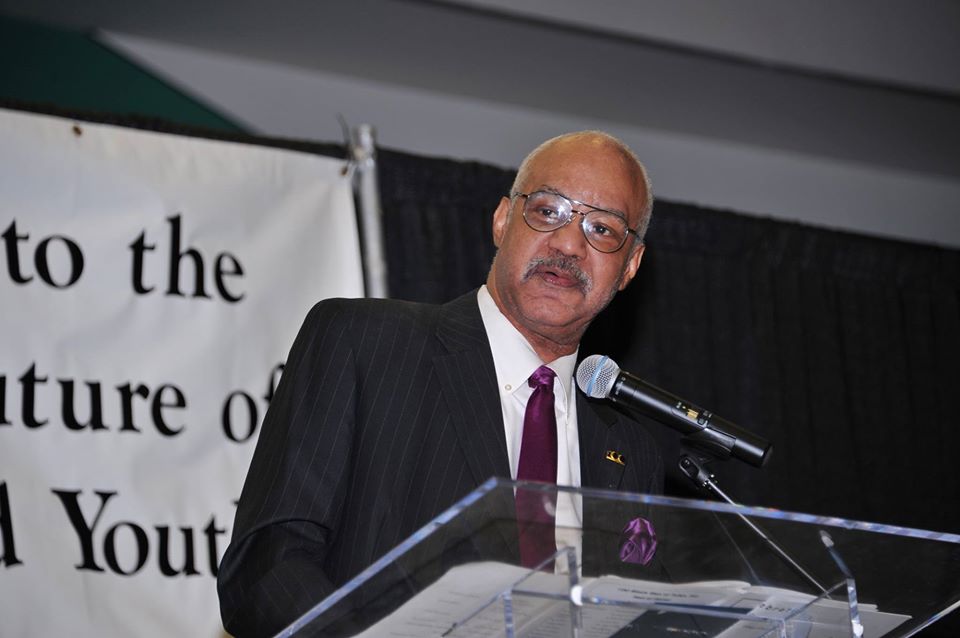
By Kelsey Philo
My husband and I are entrepreneurs who own a circus entertainment company called Inspyral Circus based in Tulsa, Oklahoma. After 5 years of giving everything we had to grow our company, we could finally afford to take our first non-working vacation. This trip to Peru was our first trip out of the country together and was only supposed to last 3 weeks. I remember deciding against bringing my laptop and thinking, “It’s just three weeks. I can stand three weeks without work. I deserve it.”
The first two weeks of our vacation took place in the remote Peruvian jungle near Iquitos, a city accessible only by boat or plane. Our group of eleven Oklahomans and one Wisconsonian took a bus on a bumpy dirt road to the bank of the Amazon river, and then we took a small, narrow boat down the Amazon to the retreat center. We were completely cut off from the outside world. As the sole customer service contact for hundreds of event clients and a team of performers, this was a much-needed break for me. We had spent weeks preparing our clients and performers for our absence. At the time we left, the Coronavirus was still only in Wuhan, China, and the only travel restriction was from China to the U.S. We were the only people who even brought masks with us, some we had leftover from Burning Man. None of us were worried about what was brewing in the world outside.

We spent two weeks relaxing in hammocks in the balmy Peruvian jungle, drinking a myriad of plant medicines grown right on the property prescribed by our personalized treatment plans for a variety of illnesses from depression and anxiety to chronic physical ailments. We ate healthy, organic food made by local Peruvian women, read books, took Chi Gong classes and participated in healing ceremonies led by the shaman or ‘Curandero’ as he is called in the tradition. We left the jungle feeling rejuvenated, rested, and radiant from the deep dive into our individual healing journeys. We loaded back onto the Amazon boat and then back onto the bus. Thirty minutes into the ride, my phone connected to the outside world for the first time in two weeks, and it became clear that the world had changed drastically while we were away.
Back in Iquitos, the busy city streets, loud noises and exhaust of moto-taxis was a rude awakening from what seemed like a peaceful dream. Four people from our group went home as planned. The remaining 8 of us flew back to the capital city of Lima and then flew to Cusco and took a bus to Písac for the second part of our trip. We would experience more Peruvian culture, get to shop in famous markets, and take a panoramic train ride to Machu Picchu. We checked into the Bamboo Lodge nestled in the Andes Mountains, surrounded by eucalyptus trees and fell asleep to the sound of the mountain river outside our window. This is heaven, I thought to myself as I snuggled up to Jeremy.
When we woke up the next morning on March 15th, our regularly scheduled meditation class was cancelled and replaced by an emergency meeting to discuss the Peruvian President’s closure of all borders at 8 AM, in approximately one hour. There was no way we could get to Cusco and on a flight in one hour. We went into emergency mode. We were stuck in Peru, and all non-life-sustaining stores would be closed indefinitely in a few hours, so we threw on our hiking boots and headed two miles down the rocky Mountain path to town to get what we needed while we still could. We needed cash, warmer clothes, and snacks.
My name is Kelsey Philo. I am a 32-year old American citizen from Oklahoma quarantined in Peru with my husband Jeremy, 35, after the Peruvian president shut the borders without warning on March 15th, instating a state of emergency, shelter-in-place, and the strictest quarantine measures in the world. While this may sound terrifying, the swift movement of the government to prohibit movement and contagion was actually quite impressive and comforting. We were all instructed to wear masks when in public, which we wore out of respect for the locals. After all, a European traveler brought COVID-19 to Peru, and this wasn’t the first time Europeans were responsible for spreading diseases here. We are the guests here. While it was inconvenient and strange to have the government tell us what to do in this way, we felt safe.

The ‘Písac 8’, as we called ourselves, each took turns going through a rotation of emotions, at different times: optimism turned to panic and then desperation, denial, acceptance, and finally optimism again. We each loved and forgave each other through low moments of bad attitudes and emotional breakdowns. We each processed the situation in our own unique way. The U.S. embassy was impossible to reach, but we had our names on 18 different lists of Americans stuck in Peru, and we believed that we would be rescued. Everyone else in our group had important reasons to get home. They either cared for elderly parents, children, pets, or had a business that was still running. Our performances were all cancelled, we have no kids. It was hard for me to wrap my head around being ‘rescued’ from this beautiful place I hadn’t even gotten a chance to enjoy.
I was disappointed that my relaxing jungle retreat was ending with such a stressful experience. Machu Picchu was closed with all other tourist attractions, but we hoped it would open in a week or two. Leisure reading and hammock time were replaced by constant travel updates and the incessant feed of pandemic news. We were all lost in the hype and fear of being stuck in Peru indefinitely. As you very well know, the panic is addicting and exhausting. We knew at any moment, the U.S. government would call us and give us very little notice to be packed and ready to be taken to Cusco for an $800/ticket repatriation flight to the U.S. The constant conjecture of when and how we would be evacuated grated on me. I couldn’t enjoy being in Peru because all we ever talked about was leaving.
We took a walk with Victor, one of the retreat volunteers we became friends with who lives in Písac. He was planning to stay and wait the virus out in Peru, instead of going home to Canada. “There’s no safer place to be than in the Sacred Valley”, he said. We walked along the river road between the mountains, next to fuschia amaranth fields. We said goodbye to Victorwhen we got back to his house, and we continued together up the mountain to Bamboo Lodge. I asked Jeremy, “What do you think about just staying here? I mean, for sixteen hundred dollars, we could get our own own place and live here for a few months. Work is cancelled.” He replied, “Yeah. We could just move here. You could go back periodically to train performers and we could have Peruvian babies that speak Spanish.” “Woah”, I said, catching my breath. “Let’s just start with the next few weeks. So, you want to stay?” “Yes.” He replied. “When else were we going to have no kids, no work, no obligations to anyone and get to live in a foreign country for a few months and learn Spanish?”
A day later, our group got a call at midnight to be evacuated the next morning. It was hard to not feelpanicked that our only known chance to leave was departing in thirty minutes with the group we had been with for the past three weeks. Luckily, We bought an old iPad off of Cathy before she left. If I was going to stay for a few weeks, I’d need some way to work other than my cell phone. We took a last group photo, said goodbye, and they were gone.
We took a deep breath and started looking for a little house to rent. While we loved Bamboo Lodge, we needed our own kitchen to cook in and more private space. We found an adorable adobe house just up the mountain, and we moved in the next day. That night, while enjoying the stars from our balcony, we accidentally closed the door behind us. We were trapped. The hilariously harrowing tale is recounted on our YouTube channel: The Philocast. Peruvian door locks are weird, and we locked ourselves out three more times before finally deciding to hide a key outside.
Life is a lot slower here. Everything is done on ‘Peru time’, which is anywhere from ten minutes to four hours late. We walk two miles down the mountain to town with our hiking backpacks and fill them with fresh groceries and huff and puff them back up. We only eat what we can carry. We sit on our porch for hours a day watching the hummingbirds fight the cutest turf wars over wildflowers. The family across the street has 4 cows, chickens, a baby and a sheep that provide endless hours of entertainment with the Andes setting the scene. The stars are the brightest, most glittery stars I’ve ever seen. It’s called “The Sacred Valley” because it lines up perfectly with the Milky Way. It’s hard to feel “trapped” in one of the most beautiful places I’ve ever been.
We’ve stayed amazingly busy despite being removed from work and my cushy double-monitor home office. I accidentally started an emergency mask-making project to help get masks to people in need while helping our performers back home earn some income making masks for donations. We sent out 1150 masks in three weeks with a team of seven people, all orchestrated with Cathy’s iPad Air 2 from our porch in Peru.
Our Spanish is almost conversational thanks to video Spanish lessons with the local Sacred Valley Spanish School and practice with our friend Saúl, the chef and manager of Bamboo Lodge. We taught our first Spanish juggling classes to Saúl and his brother Junior, and they both got it very quickly. Saúl taught us how to make our favorite Peruvian sauce from his restaurant with huancaína peppers. I am learning to bake at 10,000 feet, and we got really good at making fires in the stove before having morning coffee. I even bought a Native American drone flute.
The Peruvian government can’t keep us here forever, and I promised my mother we would come home eventually. When that time comes, we will begin the task of making some changes in the way we do things. I’ve spent the last five years learning how to be a good American entrepreneur with little downtime, exhaustion, and burnout on my heels. We are so grateful for the wonderful experience to have the opportunity to slow down, to be in nature, and to live more like a Peruvian.
For videos and real-time updates from Jeremy & Kelsey Philo, you can follow them on Instagram at @thephilocast and YouTube: The Philocast









